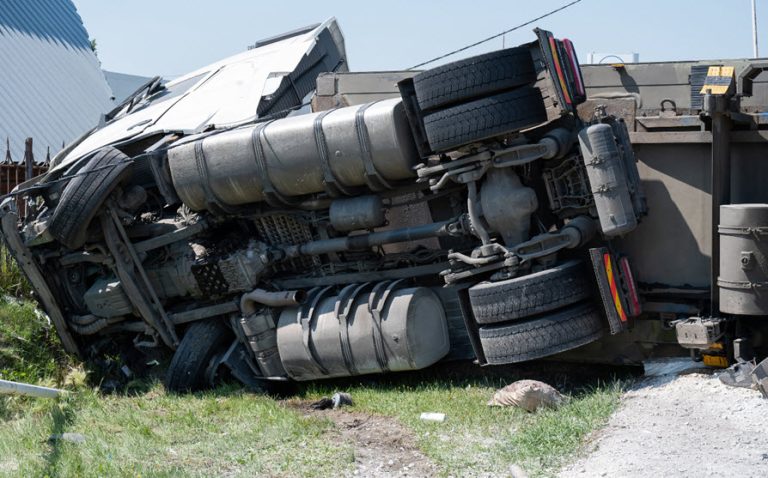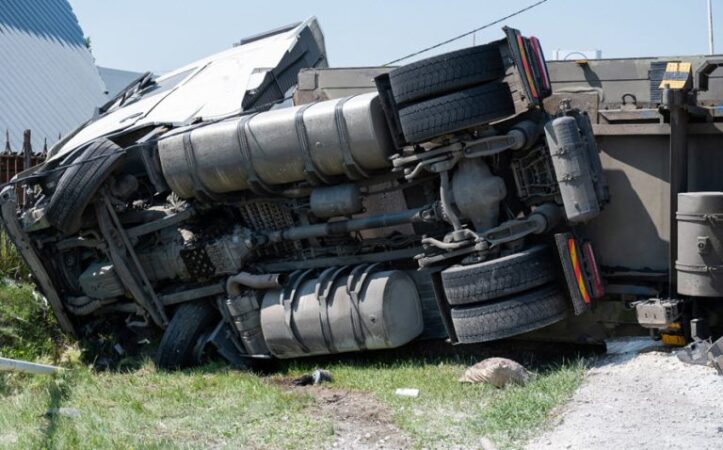
Legal Framework

Semi-truck accidents are subject to a complex legal framework that involves federal and state laws. These laws and regulations govern various aspects of semi-truck operations, including driver qualifications, vehicle maintenance, and safety standards.
One of the key federal laws governing semi-truck accidents is the Federal Motor Carrier Safety Regulations (FMCSR). The FMCSR establishes minimum safety standards for commercial motor vehicles, including semi-trucks. These standards cover a wide range of topics, including:
- Driver qualifications
- Vehicle maintenance
- Hours of service
- Cargo securement
- Vehicle inspection and repair
Common Legal Issues
In addition to the FMCSR, there are a number of state laws that govern semi-truck accidents. These laws vary from state to state, but they generally address issues such as:
- Negligence
- Liability
- Damages
- Insurance
- Statute of limitations
Liability and Negligence
Liability and negligence are key concepts in semi-truck accident cases. Liability refers to the legal responsibility for causing an accident, while negligence is the failure to exercise reasonable care that results in harm to another person.
In the context of semi-truck accidents, negligence can take many forms, including:
– Driver error: This is the most common cause of semi-truck accidents. Driver error can include speeding, distracted driving, fatigued driving, and driving under the influence of alcohol or drugs.
– Mechanical failure: This can include problems with the truck’s brakes, tires, or other components.
– Road conditions: Poor road conditions, such as potholes or icy roads, can contribute to semi-truck accidents.
– Other factors: Other factors that can contribute to semi-truck accidents include weather conditions, cargo loading, and vehicle maintenance.
When determining liability in semi-truck accident cases, courts consider a number of factors, including:
– The driver’s duty of care: Truck drivers have a duty to exercise reasonable care to avoid causing accidents. This duty of care includes following traffic laws, driving at a safe speed, and being aware of other vehicles and pedestrians.
– The plaintiff’s contributory negligence: If the plaintiff was also negligent in causing the accident, their damages may be reduced in proportion to their degree of negligence.
– The defendant’s defenses: The defendant may have defenses to liability, such as the plaintiff’s assumption of the risk or the defendant’s lack of proximate cause.
Damages and Compensation
In semi-truck accident cases, victims can recover damages for their losses. These damages can include both economic and non-economic losses.
Economic damages are those that have a specific monetary value, such as medical expenses, lost wages, and property damage. Non-economic damages are those that do not have a specific monetary value, such as pain and suffering, emotional distress, and loss of enjoyment of life.
Factors Considered When Awarding Damages
When awarding damages, courts consider a number of factors, including:
- The severity of the injuries
- The victim’s age, occupation, and life expectancy
- The victim’s pain and suffering
- The victim’s lost wages and earning capacity
- The victim’s medical expenses
- The victim’s property damage
- The defendant’s negligence
- The defendant’s insurance coverage
Examples of Successful Settlements and Verdicts
There have been a number of successful settlements and verdicts in semi-truck accident cases. For example, in 2019, a jury awarded $10 million to a victim who was paralyzed in a semi-truck accident. In 2018, a jury awarded $5 million to a victim who suffered a traumatic brain injury in a semi-truck accident.
Insurance and Coverage

In the aftermath of a semi-truck accident, insurance plays a crucial role in compensating victims for their losses and providing financial protection to drivers. Understanding the different types of insurance coverage available and navigating the claims process is essential for ensuring fair compensation and protection of rights.
Semi-truck drivers are legally required to carry liability insurance, which covers damages caused to other parties in an accident. This insurance typically includes coverage for bodily injury, property damage, and legal expenses. The minimum coverage amounts vary from state to state, but it’s recommended that drivers obtain higher limits to ensure adequate protection.
Types of Insurance Coverage
Liability Insurance: Covers damages caused to other parties, including medical expenses, lost wages, pain and suffering, and property damage.
Collision Insurance: Covers damage to the semi-truck itself, regardless of who is at fault for the accident.
Uninsured/Underinsured Motorist Coverage: Protects victims from drivers who do not have insurance or have insufficient coverage.
Medical Payments Coverage: Covers medical expenses for the driver and passengers of the semi-truck, regardless of who is at fault.
Navigating the Insurance Claims Process
After a semi-truck accident, it’s crucial to contact your insurance company and report the incident promptly. Provide detailed information about the accident, including the time, location, and circumstances. Cooperate with the insurance adjuster and provide all necessary documentation, such as medical records and repair estimates.
Negotiating with the insurance company can be challenging. It’s advisable to seek legal advice from an experienced semi-truck accident attorney to ensure your rights are protected and you receive fair compensation for your losses.
Choosing a Lawyer

Selecting the right lawyer to represent you in a semi-truck accident case is crucial. An experienced lawyer can guide you through the legal process, protect your rights, and maximize your compensation.
Here are some tips on how to find and evaluate potential lawyers:
- Referrals: Ask friends, family, or other professionals for recommendations.
- Online reviews: Check online directories and read reviews from past clients.
- Experience: Look for lawyers who specialize in semi-truck accident cases and have a proven track record of success.
- Consultation: Schedule consultations with several lawyers to discuss your case and assess their knowledge and communication skills.
Factors to Consider When Selecting a Lawyer
- Expertise: Choose a lawyer with extensive experience handling semi-truck accident cases.
- Reputation: Look for a lawyer with a strong reputation in the legal community.
- Communication: Select a lawyer who is responsive, communicates clearly, and keeps you informed about your case.
- Fees: Understand the lawyer’s fee structure and ensure it aligns with your financial situation.
- Comfort level: Choose a lawyer you feel comfortable with and who you believe will represent your interests effectively.





